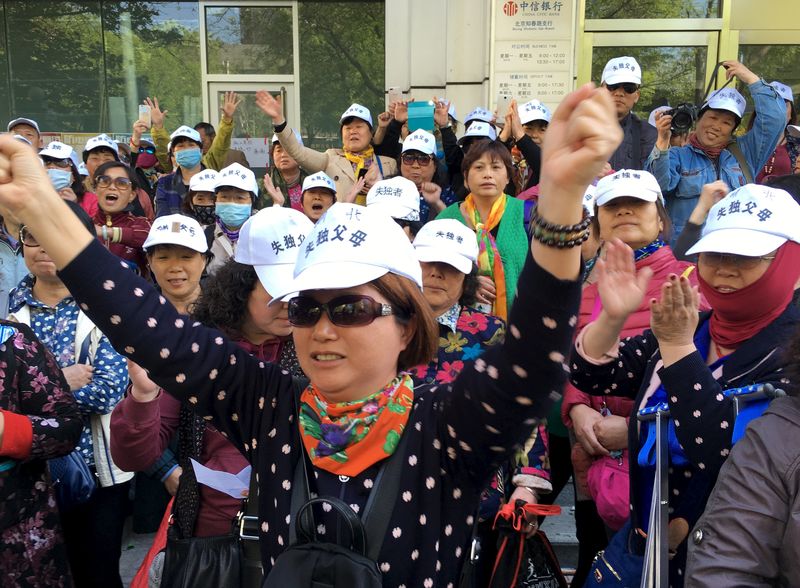By Joseph Campbell and Kim Kyung-Hoon
BEIJING (Reuters) - Hundreds of Chinese parents who had lost their only child protested in Beijing on Monday, demanding more compensation from the government for a decades-long "one-child policy", which they said left them without family support.
Last year, the ruling Chinese Communist Party announced it would relax the controversial policy, introduced in the late 1970s to limit population growth, allowing all couples to have two children.
But critics say the change came too late to avert a dangerous population imbalance, which has led to an ageing society, a shrinking labour pool, and left some parents with no living children to care for them as they grow old.
More than 1,000 people whose only child had died gathered outside the gates of the National Health and Family Planning Commission, urging the government to give them more assistance.
"When we're old, if any difficulties arise, no one can help us, because there are some policies in China which prevent us from receiving proper conditions," said a man named Zhou Zhenlong.
"We've been going to communicate with the government, but right now, this communication has resulted in nothing," Zhou said.
Many of the protesters wore white hats with the message: "bereaved of only child".
Some said they got up to 500 yuan ($77) of compensation a month from the government but it was not enough to cover their needs having lost the sole child who would be their legal caretaker.
Some said they got nothing.
According to Chinese national law, parents have the right to monthly compensation for the loss of their only child, but the amount varies from place to place.
The gathering was peaceful, with parents singing patriotic songs, though the police presence was heavy. Protesters said it was the fifth year they had come from around the country to demand more compensation.
The National Health and Family Planning Commission could not be reached for comment.
China's population is set to peak at about 1.45 billion by 2050 when one in every three people is expected to be more than 60 years old, with a shrinking proportion of working adults to support them.
The "one-child policy" is now regarded as outdated.

"It's unimaginable. Taking care of yourself, making food on your own, there is not one person there with anything. It's a really helpless feeling," said a woman named Zhang Daohua.